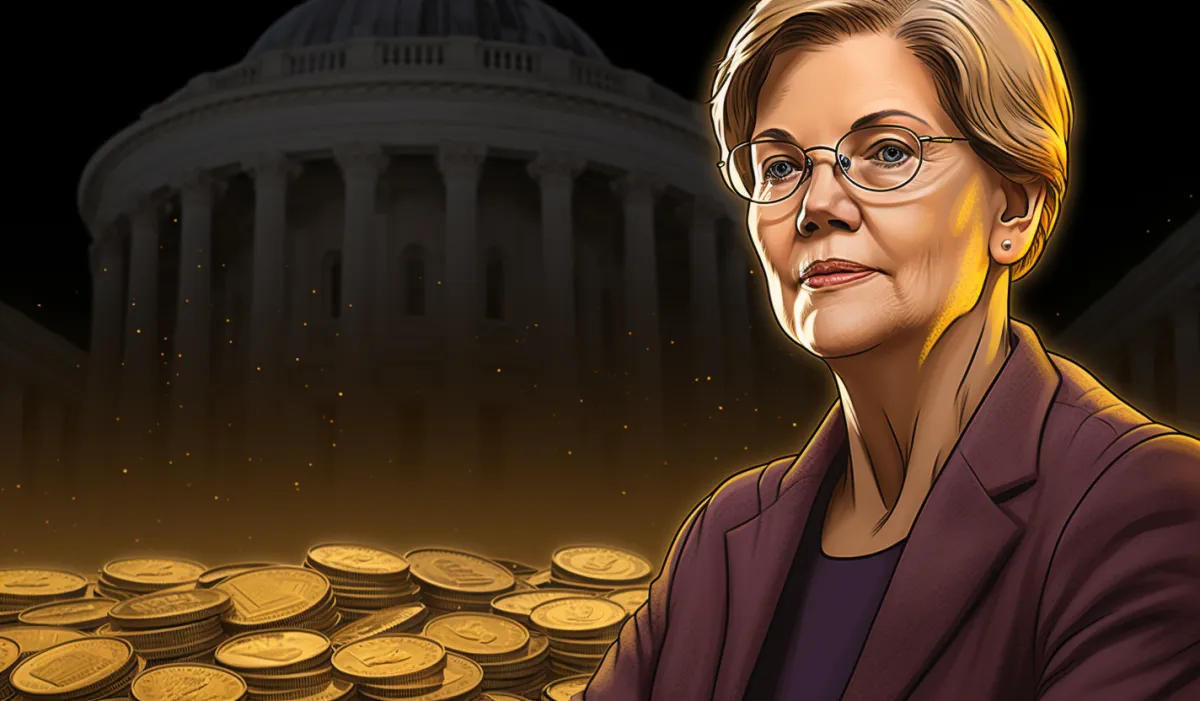Senator Elizabeth Warren’s Digital Asset Anti-Money Laundering Act has received support from five additional senators, signaling growing support for legislation targeting the illicit use of cryptocurrencies. indicates. Senators Raphael Warnock, Laphonza Butler, Chris Van Hollen, John Hickenlooper, and Ben Ray Luján joined as co-sponsors of the bill, strengthening bipartisan efforts to crack down on money laundering and terrorist financing through cryptocurrency assets.
In a December 11 announcement, Senator Warren expressed satisfaction that new senators have joined the cause and emphasized the bill’s strong approach to combating the illicit use of cryptocurrencies. The bill, introduced back in July, aims to provide regulators with improved tools to address challenges posed by digital assets in the context of financial crime.
The Digital Asset Anti-Money Laundering Act has already been approved by the Bank Policy Institute, Massachusetts Bankers Association, Transparency International US, Global Financial Integrity, and the National District Attorneys Association. Attorneys Association, Major County Sheriffs of America, National Consumer Law Center and National Consumer Federation.
Warren repeated a statement she made during a Dec. 6 Senate Banking Committee hearing in which she claimed about half of North Korea’s missile program is funded by digital assets. This claim highlights the senator’s commitment to addressing potential threats associated with the misuse of cryptocurrencies.
While the bill has gained traction in Congress, criticism has emerged that it should focus on malicious actors rather than regulating the underlying technology. Cybersecurity expert Steve Weisman supported the bill at a Senate hearing in November, emphasizing its importance in addressing money laundering.
Requiring non-custodial open source software to perform bank-like compliance is the *big* attack that Bitcoin’s enemies have always threatened. For example, it would be impossible for Bitcoin Core to comply, so this would be equivalent to effectively banning Bitcoin in the United States.
— Alex Thorne (@intangiblecoins) December 11, 2023
However, concerns have been raised about the bill’s potential impact on the cryptocurrency industry. Alex Thorn, head of enterprise research at Galaxy Research, characterized the bill as an “effective ban” on Bitcoin and cryptocurrencies in a post on X (formerly Twitter) on December 11. Thorn argued that decentralized software cannot realistically perform centralized compliance functions, pointing to provisions in the bill that extend know-your-customer requirements to cryptocurrency wallet providers, miners and validators.
The Digital Asset Anti-Money Laundering Act is a direct attack on technological progress and a direct attack on our privacy and autonomy.
Make no mistake. Proposed as a solution to potential money laundering and terrorist financing, this bill actually… pic.twitter.com/8oID1wECGL
— Neeraj K. Agrawal (@NeerajKA) December 11, 2023
Neeraj Agrawal, communications director at cryptocurrency think tank Coin Center, echoed these sentiments about explained. Agrawal emphasized that the bill, presented as a solution to money laundering and terrorist financing, contradicts liberal values and can only be opposed as a whole.

